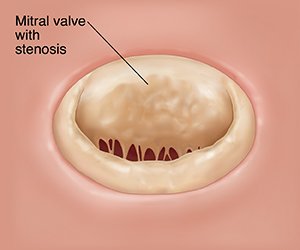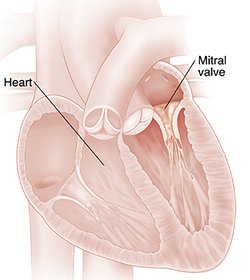Mitral Valve Stenosis
Mitral stenosis means the mitral valve stiffens and doesn’t open all the way. When it can’t fully open, blood must move through a smaller opening. In severe cases, it can effect other organs and the rest of the body. Fluid and pressure can build up in the lungs. This can lead to coughing and breathing problems. Problems with the mitral valve can also cause a fast or irregular heartbeat (palpitations). Over time, mitral stenosis may slowly get worse.
Possible causes
Most mitral stenosis is caused by rheumatic fever. This illness can lead to an inflammation that damages the heart valves. Although pregnancy doesn’t cause mitral stenosis, a woman may first get symptoms of mitral stenosis during pregnancy. This is because the amount of blood her heart has to move has increased.


Treating mitral valve stenosis
If you don’t have symptoms, you usually don’t need treatment. If symptoms occur, your doctor may prescribe medicines to help ease them. If the stenosis is severe, a procedure called balloon valvuloplasty can stretch the opening of the valve.
If a valvuloplasty can’t open the valve, surgery can be done to replace the valve. A tissue valve or a mechanical valve may be used.
